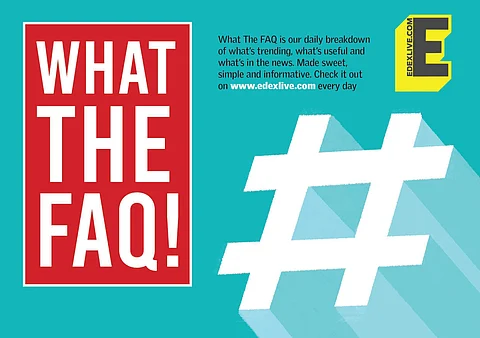

The Central Government on Thursday released new guidelines for OTT, news and social media platforms. This has been in the pipeline for at least the past three years now. There were also speculations on whether they will interfere with an individual's freedom of expression or if the government can yield its power to regulate what we watch on Netflix, Amazon Prime Video, YouTube, etc. While these guidelines are still in draft format, it does have a few stricter rules that the social media platforms need to adhere to.
Let's look into what these guidelines say, what happens when they are not followed and how will our social media experience change as users.
What are the guidelines for social media platforms or what the government calls 'intermediaries'?
Ans: As per the official release of the guidelines for social media intermediaries, "The rules seek to empower the users by mandating the social media intermediaries, to establish a grievance redressal mechanism for receiving resolving complaints from the users or victims. They shall appoint a Grievance Officer to deal with such complaints and share the name and contact details of such officer. Grievance Officer shall acknowledge the complaint within twenty-four hours and resolve it within fifteen days from its receipt."
To ensure online safety and dignity of users, especially for women, the guidelines state that the platforms should "remove or disable access withing 24 hours of receipt of complaints of contents that exposes the private areas of individuals, show such individuals in full or partial nudity or in a sexual act or is in the nature of impersonation including morphed images etc. Such a complaint can be filed either by the individual or by any other person on his/her behalf."
Social media platforms are required to remove unlawful information "upon receiving actual knowledge in the form of an order by a court or being notified by the Appropriate Government or its agencies through an authorised officer. It should not host or publish any information which is prohibited under any law in relation to the interest of the sovereignty and integrity of India, public order, friendly relations with foreign countries etc."
What do the guidelines for online news, OTT platforms and digital media say?
Ans: The OTT platforms, referred to as the publishers of online curated content in the rules, would have to self-classify the content into five age-based categories- U (Universal), U/A 7+, U/A 13+, U/A 16+, and A (Adult). "Platforms would be required to implement parental locks for content classified as U/A 13+ or higher, and reliable age verification mechanisms for content classified as 'A'. The publisher of online curated content has to prominently display the classification rating specific to each content or programme together with a content descriptor informing the user about the nature of the content, and advising on viewer description (if applicable) at the beginning of every programme enabling the user to make an informed decision, prior to watching the programme," the guidelines state.
For news on digital media, the publishers will have to follow the Norms of Journalistic Conduct of the Press Council of India and the Programme Code under the Cable Television Networks Regulation Act. A three-level grievance redressal mechanism has been established under the rules with different levels of self-regulation — Self-regulation by the publishers; Self-regulation by the self-regulating bodies of the publishers; Oversight mechanism.
What are the penalties if the platforms don't follow the rules?
Ans: If social media platforms, OTT, online news platforms do not adhere to these guidelines, they will be punished “under any law for the time being in force including the provisions of the IT Act and the Indian Penal Code”. The punishment can range from jail time for three years to seven years, with fines of a minimum of Rs 2 lakh or both.
Will all this affect our social media experience?
Ans: The platforms will have to delete our post within a period of 36 hours if we post anything that “threatens the unity, integrity, defence, security or sovereignty of India, friendly relations with foreign states, or public order, or causes incitement to the commission of any cognizable offence or prevent investigation of any offence or are insulting any foreign States” or “is defamatory, obscene, pornographic, paedophilic, invasive of another’s privacy, including bodily privacy; insulting or harassing on the basis of gender; libellous, racially or ethnically objectionable; relating or encouraging money laundering or gambling, or otherwise inconsistent with or contrary to the laws of India” and more, your post cannot be kept on a social media platform”.
